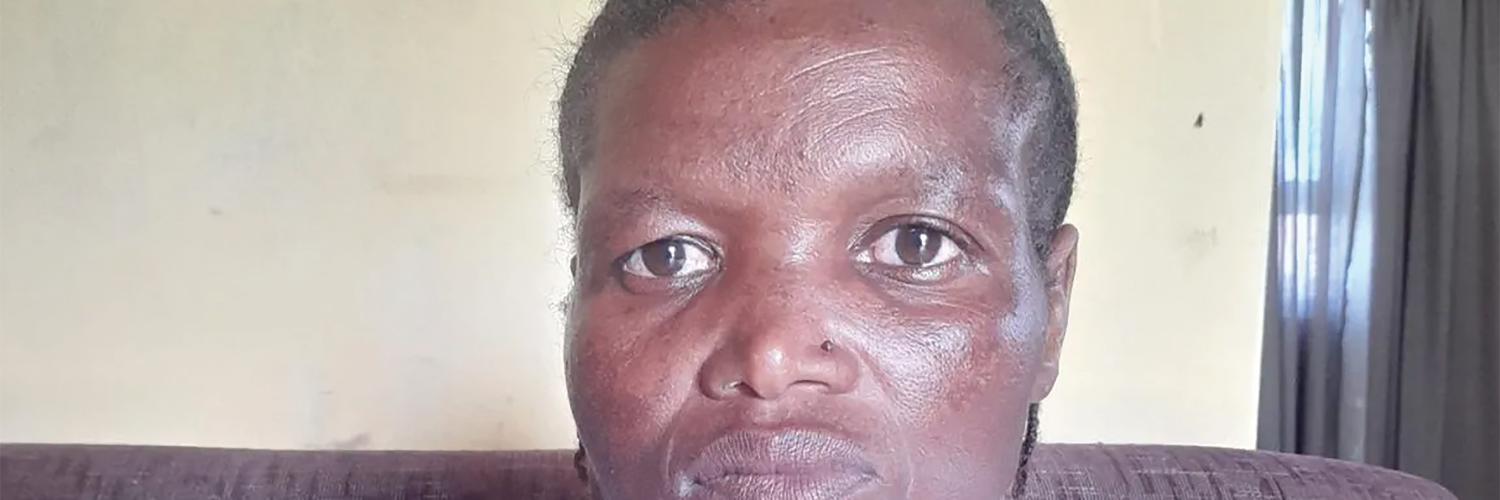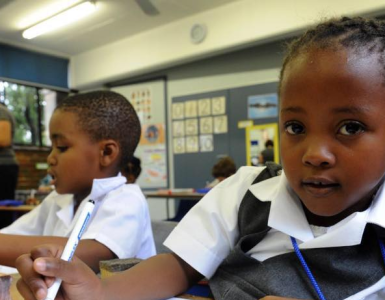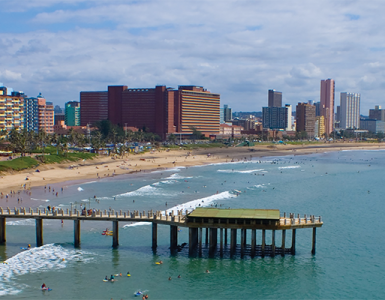BOTCHED: Eastern Cape mother relates her traumatic experience after X-rays discovered the object inside her – weeks after an operation to remove her dead unborn baby from her womb left her with constant excruciating pain…
By Pamela Hlazo
An Eastern Cape woman and her family are demanding answers from the provincial health department after an unfortunate series of events that took place more than a year ago left her with life-altering injuries from an operation.
In 2023, the 42-year-old Nomveliso Nqeketho from Mqwangqweni in Ngqeleni, was pregnant with her second child and attended regular antenatal appointments at her local clinic.
However, in December, in her final month of pregnancy, her feet and face suddenly started swelling, and she decided to visit Canzibe Hospital, the closest public health facility to her home, where she was admitted for four days before being transferred to Nelson Mandela Academic Hospital in Mthatha. Her transfer was the beginning of her long painful journey.
“When I arrived [at Nelson Mandela Hospital], I was told that my unborn baby had died inside my womb, and my womb was also damaged,” Nomveliso recalls. “I was then informed that I would need an operation to remove the baby and my womb.” Post operation, Nomveliso remained at the hospital, under observation by nurses. A few days later, she was discharged with instructions to attend follow-up check-ups at Nolitha Clinic, which is closer to her home.
Once home, Nomveliso began experiencing excruciating pain but thought it was part of the post-op recovery process and was normal. However, during her check-ups, nurses noticed that she was not healing properly: there was urine leaking from the surgical site.
There was no clear information on her medical records about what had happened to her, so the nurses referred her back to Nelson Mandela Hospital, where she received the utterly shocking news.
“I was told that they would need to reopen me to investigate the problem. I overheard a nurse saying that a pair of scissors had been left inside me. They suspected that it had been forgotten during my earlier operation. I had to undergo a second operation.” After spending over a month at Nelson Mandela Hospital, Nomveliso was discharged in early January 2024. She had hoped that her painful journey was over, but it was not.
“I thought I could finally mourn the loss of my child, who had passed away and was buried while I was in the hospital. However, my struggles continued. I have been experiencing incontinence, and I am in constant pain. It is embarrassing, and I have to use adult nappies, which cost me around R500 per month. I also have to care for my 8-year-old child,” Nomveliso says, visibly heartbroken.
More than a year has passed, and Nomveliso’s health still has not improved and her ordeal continues without official information. She and her family have many unanswered questions. Linda Nqeketho, Nomveliso’s elder sister, shares their concerns.
“We feel that the Department of Health is hiding information from us. We want to know why there is no record of what really happened to Nomveliso on her medical records. We want to know at what stage her baby died, as she never missed any antenatal appointments.
“We want to know what damaged her womb, and why she never received an apology for the scissors left inside her. We also want to know what is causing her incontinence and what went wrong during her operation.” – Health-e News
MIRROR Briefs
TOP COP’S PROBE CLOSED
Independent Police Investigative Directorate (IPID) has withdrawn its probe on Kwazulu-Natal Police Commissioner, Nhlanhla Mkhwanazi, over the allegations of abusing power.
The investigation followed an anonymous complaint from a member of the public.
It is alleged that Mkhwanazi interfered with the arrest of a senior Correctional Services official, Nelly Ndlovu, in Richards Bay in 2023. Mkhwanazi has rejected the allegations and maintained there was a plot to oust him for his no-nonsense approach to crime and corruption.
IPID spokesperson, Robbie Raburabu, confirmed the withdrawal but declined to comment on the details, citing confidentiality protocols. “The investigation has been closed as there was insufficient evidence to proceed,” he said.
Mkhwanazi has not issued a formal statement, but Fullview learnt that he is more determined than ever to stay the course. He is known for his tough stance on crime and uncompromising leadership style. He has long been a respected yet polarising figure in law-enforcement circles.
The Economic Freedom Fighters welcomed IPID’s decision, maintaining that the allegations were designed to derail a committed officer who has been unrelenting in his fight against crime and corruption. The party pointed to what it called a coordinated campaign to undermine Mkhwanazi, citing his firm stance against political interference and his crackdown on criminal networks in KwaZulu-Natal. – Lehlohonolo Lehana.
DRONES TO SECURE BORDERS
Four advanced unmanned aerial vehicles, commonly known as drones and 40 body-worn cameras will be deployed for the first time at the country’s ports of entry over the coming Easter long weekend.
The drones are equipped with some of the most advanced night vision cameras in the world, including thermal detection technology.
Powered by Artificial Intelligence (AI), the devices are able to recognise and lock onto heat sources, moving people, or vehicles. They can also travel at speeds up to 43 kilometres per hour and are capable of operating in remote rural areas without access to GPS and even underground.
Speaking at a media briefing , Home Affairs Minister, Leon Schreiber, said the launch of technology marked the biggest step forward for enhancing border security and management. “Data shows that when we first trialled the use of drones over the festive season, the number of attempted illegal crossings that were successfully prevented, increased by 215%.”
He added that the Border Management Authority would now permanently deploy this cutting-edge technology on a fulltime basis.
“Our message to would-be illegal immigrants and smugglers is clear. We are now watching the borderline during the day, we are watching at night, we can see your body heat wherever you try to hide, and we will catch you.” – SAnews.
JOBS FOR 1200 DOCTORS
In a significant move to address the critical shortage of healthcare professionals in the public healthcare system, the National Health Council has announced the approval of 1 200 new positions for doctors.
The decision comes after years of budgetary constraints that hindered the employment of medical professionals despite dissatisfaction and urgent need.
Health Minister, Dr Aaron Motsoaledi’s announcement followed the presentation of a new budget by the Finance Minister on 12 March 2025, which allocated R1.78 billion to fund the recruitment of healthcare workers. In addition to the 1 200 doctors, Motsoaledi said the Council had approved the hiring of 200 nurses and 250 other healthcare professionals.
He told journalists that the Human Resources units would soon commence with recruitment processes once all logistics have been finalised.
“Early this year, the country woke up to widespread dissatisfaction about the employment of healthcare professionals, especially doctors amid [a] shortage in the public healthcare system.”
However, Motsoaledi believed that this development marked a turning point for the public healthcare sector, which had been struggling to meet the demands of a growing population. The Council’s decision is expected to alleviate pressure on existing healthcare facilities and improve access to quality medical care for citizens. – SAnews
PLIGHT OF THE MEDIA
With the media industry fighting for its survival amidst the rise of digital media, Deputy Minister in The Presidency, Kenny Morolong, has called on the industry to make deliberate efforts to transform the sector’s ownership patterns.
“Government remains committed to working alongside industry stakeholders to ensure that South Africa’s media landscape is inclusive, competitive and representative of the country’s diversity,” Morolong said.
He was addressing members of the Print and Digital Media Transformation and Revitalization Steering Committee in Rosebank, Johannesburg.
The Minister painted a sobering picture of the industry’s current state, noting a dramatic decline in print newspaper (both commercial and local) circulation – from approximately 45 million copies annually to dwindled numbers that were never imagined before, which is “very worrisome for government.”
“The current challenges of operating in the digital environment; excess print, distribution and transport cost; reduction in newspaper subscribers; dwindling circulation figures coupled with reduced advertising budgets, both from corporate and government, have forced publishers to close down.“We have a responsibility to save an industry that is ailing and to do so, there needs to be government investment’’. – SAnews


































